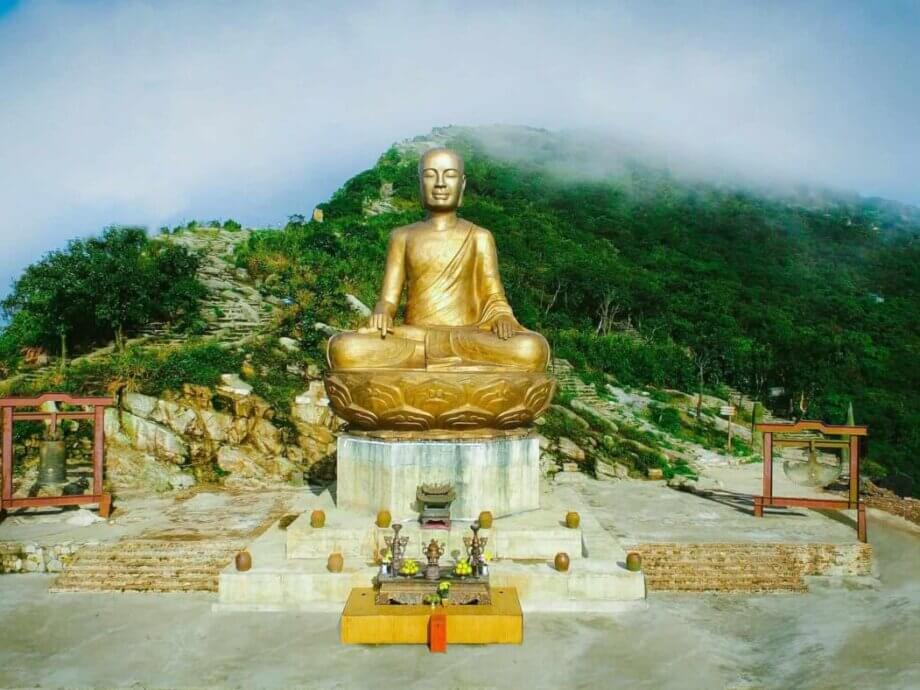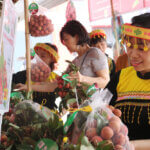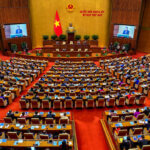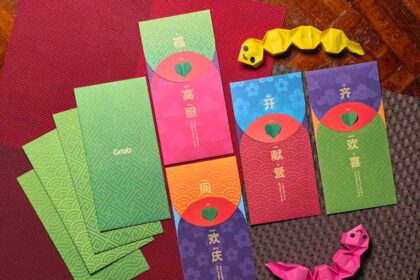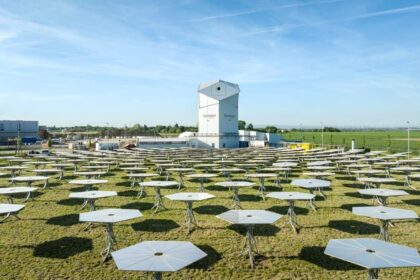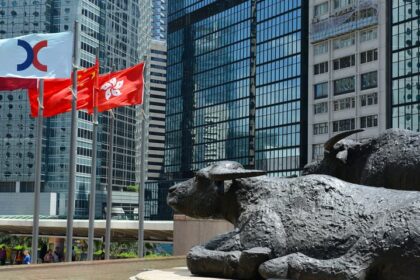Yen Tu: Vietnam’s Summer Sanctuary of Heritage, Spirituality, and Sustainable Tourism
As summer unfolds across Vietnam, the sacred mountains of Yen Tu in Quang Ninh Province are witnessing a remarkable influx of visitors. From Buddhist pilgrims and families to curious young travelers, Yen Tu has become a vibrant hub of cultural, spiritual, and wellness experiences. This surge is not only a testament to the site’s enduring legacy but also reflects broader trends in Vietnam’s tourism renaissance, where heritage, community, and sustainability are at the forefront.
- Yen Tu: Vietnam’s Summer Sanctuary of Heritage, Spirituality, and Sustainable Tourism
- What Makes Yen Tu a Unique Cultural Destination?
- Summer Surge: Why Are Visitors Flocking to Yen Tu?
- Heritage Meets Modern Tourism: Community and Economic Impact
- Festivals and Seasonal Attractions: The Heartbeat of Yen Tu
- Sustainable Tourism: Preserving Nature and Culture
- Visitor Experience: Practical Tips and Highlights
- Yen Tu in the Context of Vietnam’s Tourism Boom
- In Summary
What Makes Yen Tu a Unique Cultural Destination?
Yen Tu is more than just a scenic mountain range; it is a living tapestry of Vietnam’s spiritual and cultural history. Nestled about 50 kilometers from the world-renowned Ha Long Bay, Yen Tu’s landscape is dotted with ancient pagodas, hermitages, and towers, many dating back to the Tran Dynasty (13th-14th centuries). The area is revered as the birthplace of Truc Lam Zen Buddhism, a uniquely Vietnamese school of thought founded by King Tran Nhan Tong after he abdicated his throne to pursue a life of meditation and teaching.
Today, Yen Tu’s spiritual significance is matched by its natural beauty. Lush forests, misty peaks, and tranquil streams create an atmosphere of peace and reflection, drawing visitors seeking both inner calm and cultural enrichment. The site’s architectural marvels, such as the Dong Pagoda—cast entirely in bronze and perched atop the highest peak—and the Hue Quang Golden Stupa, stand as enduring symbols of Vietnam’s religious and artistic heritage.
Modern Developments: Blending Heritage with Hospitality
In recent years, Yen Tu has undergone thoughtful development to enhance the visitor experience while preserving its core values. The Truc Lam Cultural Center, a collaborative creation by renowned architect Bill Bensley, the Tung Lam Development Joint Stock Company, and local artisans, masterfully recreates the essence of ancient Vietnamese villages. This center includes:
- Legacy Yen Tu – MGallery: A wellness sanctuary echoing the grandeur of Tran-era palaces, offering spa treatments, meditation, and yoga in serene settings.
- Yen Tu Village: A resort styled after traditional rural communities, where guests can immerse themselves in folk games, craft workshops, and culinary explorations.
- Cable Car System: A modern yet unobtrusive way to ascend the mountain, providing breathtaking views of the primeval forest below.
These facilities are designed to foster a holistic sense of well-being—mind, body, and spirit—while ensuring that the site’s historical and spiritual essence remains intact.
Summer Surge: Why Are Visitors Flocking to Yen Tu?
The summer of 2025 has seen a notable increase in visitors to Yen Tu, mirroring a nationwide boom in domestic tourism. According to provincial statistics, Quang Ninh welcomed over 9.1 million tourists in the first five months of the year, with Yen Tu alone attracting more than 1.5 million during major events such as the ceremonial procession of the Buddha’s sacred relics. This growth is driven by several factors:
- Specialized Programs for Youth and Families: Yen Tu Village has introduced camps like “Understanding and Loving” for youths aged 11-15, focusing on emotional development and strengthening family bonds. These programs use outdoor activities, meditation, and cultural workshops to foster mutual understanding between parents and children.
- Family-Friendly Events: Throughout the summer, the site hosts traditional craft workshops, folk games, culinary tours, and vibrant cultural performances, making it an engaging space for families to connect and create lasting memories.
- Wellness and Healing: Surrounded by forested mountains and fresh air, Yen Tu offers meditation, yoga, and wellness therapies using native herbs, helping visitors restore balance and inner peace.
An official from the Yen Tu Management Board extends an open invitation:
“Yen Tu warmly invites visitors to explore its rich heritage, immerse in its cultural and natural wonders, and rediscover peace of mind.”
This inclusive approach has made Yen Tu a magnet for both spiritual seekers and those simply looking to unwind in nature.
Heritage Meets Modern Tourism: Community and Economic Impact
Yen Tu’s transformation into a modern tourism destination has been carefully balanced with efforts to preserve and promote its deep-rooted cultural values. The involvement of local communities, particularly the Dao Thanh Y people, has been central to this process. The Dao Thanh Y, who make up about 60% of the population at the mountain’s foothills, have a rich tradition of herbal medicine, brocade weaving, and unique culinary practices.
Community-Based Tourism Initiatives
Local leaders and entrepreneurs have established cooperatives to share their heritage with visitors. For example, Truong Thi Thanh Huong’s cooperative in Khe Su 2 village offers herbal foot baths, traditional brocade products, and immersive cultural experiences. These initiatives not only provide authentic encounters for tourists but also create sustainable livelihoods for local residents.
Traditional Dao dishes—such as colorful sticky rice, stir-fried bamboo shoots, and river fish specialties—have become popular among visitors, while local apricots are transformed into healthy beverages and snacks. These products are often sold on-site and at local markets, further integrating tourism with the regional economy.
Challenges and Opportunities
Despite the success of these community-based models, challenges remain. Many initiatives are still small in scale and require further support in terms of funding, training, and infrastructure. Provincial authorities are working to address these gaps by:
- Establishing cultural exhibition spaces to showcase Dao heritage
- Facilitating homestays and immersive experiences
- Investing in traditional Dao houses and standardizing cultural villages
These efforts are part of a broader strategy to position Yen Tu—and Quang Ninh Province as a whole—as a premier destination for heritage-focused and sustainable tourism.
Festivals and Seasonal Attractions: The Heartbeat of Yen Tu
One of the highlights of Yen Tu’s cultural calendar is the annual Yen Tu Festival, which takes place from the 9th day of the first lunar month and lasts for three months. This grand celebration blends spiritual rituals, such as offerings and peace prayers, with lively cultural activities including dragon and lion dances, traditional music, folk games, and exhibitions. The festival is a vibrant showcase of Vietnam’s spiritual and artistic traditions, drawing pilgrims and tourists from across the country and beyond.
In addition, the Tay Yen Tu (West Yen Tu) Spring Festival in neighboring Bac Giang Province further amplifies the region’s appeal. This event features processions honoring the ancestors of the Truc Lam Zen Sect, cycling races, and art performances depicting the life of King Tran Nhan Tong. Such festivals not only honor historical and religious figures but also serve as platforms for cultural exchange and tourism promotion.
Year-Round Appeal
While spring is often considered the best time to visit—when ancient apricot trees bloom with fragrant yellow flowers—Yen Tu’s beauty endures through all seasons. Summer brings lush greenery and a host of outdoor activities, while autumn and winter offer tranquil landscapes and opportunities for reflection.
Sustainable Tourism: Preserving Nature and Culture
As visitor numbers rise, the imperative to protect Yen Tu’s natural and cultural assets has never been greater. The management board and local authorities have implemented a range of eco-friendly practices, including:
- Encouraging responsible waste disposal and minimizing single-use plastics
- Promoting the use of local, organic ingredients in culinary offerings
- Involving the community in landscape protection and cultural preservation
These measures are aligned with Quang Ninh Province’s broader vision to become a regional and global tourism hub by 2030, with a focus on sustainable growth. The province has introduced dozens of new tourism products, expanded travel routes, and strengthened ties with international partners to attract a diverse array of visitors.
UNESCO World Heritage Ambitions
Recognizing Yen Tu’s outstanding universal value, authorities have prepared a dossier to nominate the Yen Tu – Vinh Nghiem – Con Son, Kiep Bac complex as a UNESCO World Cultural Heritage Site. This move would further cement Yen Tu’s status as a cornerstone of Vietnam’s spiritual and cultural identity, ensuring its preservation for future generations.
Visitor Experience: Practical Tips and Highlights
For those planning a trip to Yen Tu, a blend of preparation and respect for local customs is key. Here are some practical tips:
- Getting There: Yen Tu is easily accessible from Hanoi (about 130 kilometers away) by bus or private vehicle. Many buses to Ha Long Bay pass by Yen Tu, making it a convenient stop for travelers exploring northern Vietnam.
- Climbing and Cable Cars: The traditional pilgrimage involves a 6-kilometer climb up stone steps, but the modern cable car system offers a scenic and less strenuous alternative. Ticket prices vary by route, with discounts for children, seniors, and veterans.
- What to Pack: Wear light, breathable clothing and comfortable shoes suitable for hiking. Modest dress is recommended out of respect for the sacred sites. Bring water, snacks, and a small backpack. Bamboo walking sticks are available at the mountain’s base for added support.
- Staying Overnight: Accommodation options range from luxury resorts like Legacy Yen Tu – MGallery to homestays in local villages, offering a spectrum of experiences from comfort to cultural immersion.
Visitors are encouraged to dispose of trash responsibly, avoid purchasing unverified herbal products from mountain vendors, and remain vigilant during crowded festival periods. The journey up the mountain is both a physical and spiritual adventure, offering moments of reflection and awe at every turn.
Yen Tu in the Context of Vietnam’s Tourism Boom
The resurgence of tourism in Vietnam is evident not only in Yen Tu but across the country. In the first days of May 2025 alone, domestic travel surged, with millions flocking to destinations like Hanoi, Ho Chi Minh City, Da Nang, and Quang Ninh. Airlines increased flight frequencies, and hotels reported occupancy rates exceeding 80% in many regions. This momentum is expected to continue, with Quang Ninh targeting 20 million visitors in 2025, including 4.5 million international arrivals.
Major events such as the Ha Long Bay Heritage Marathon and the Yen Tu Mountain Climb are further boosting the province’s profile, attracting both local and international participants. These initiatives are part of a comprehensive strategy to diversify tourism offerings, enhance service quality, and promote sustainable development.
In Summary
- Yen Tu is a premier cultural, spiritual, and wellness destination in Quang Ninh Province, Vietnam, attracting a diverse array of visitors, especially during the summer.
- The site blends ancient heritage with modern hospitality, offering programs for youth, families, and wellness seekers.
- Community-based tourism, particularly among the Dao Thanh Y people, enriches the visitor experience and supports local livelihoods.
- Annual festivals and cultural events highlight Yen Tu’s historical and spiritual significance, drawing pilgrims and tourists alike.
- Sustainable tourism practices are central to Yen Tu’s development, with efforts to preserve both natural landscapes and cultural traditions.
- Yen Tu’s growing popularity reflects broader trends in Vietnam’s tourism sector, which is experiencing robust growth and diversification.
- Authorities are working to secure UNESCO World Heritage status for Yen Tu, ensuring its protection and global recognition.


